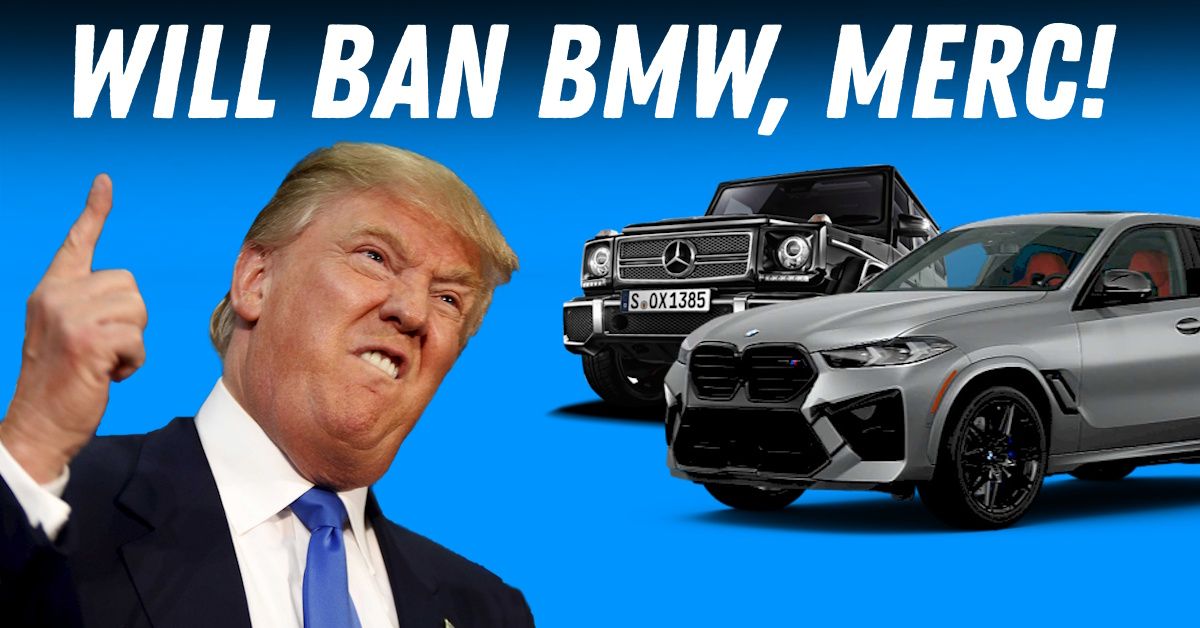Trump Holding Mercedes Benz, BMW Hostage: We Explain


In a surprising development that intertwines the auto and pharmaceutical sectors, Donald Trump has put forth a daring proposition: ban the sale of European cars in the United States unless there's a reduction in drug prices.
This announcement, made during a White House speech, has stirred a mix of apprehension and speculation across industries. The ripple effects of such a policy could touch everything from the cost of vehicles and medication to the broader implications for international trade and employment.
At the heart of Trump's strategy is the use of European luxury vehicles as a bargaining chip to instigate a reduction in pharmaceutical prices. This move targets prominent brands such as Mercedes, BMW, and Volkswagen. The approach is straightforward on the surface, aiming to leverage America's demand for these vehicles to influence European drug pricing policies.
However, this tactic overlooks the intricate dynamics that govern these distinct industries, creating a scenario that has left many scratching their heads. The automotive sector, with its specific regulatory and market frameworks, operates independently from pharmaceutical pricing mechanisms, which are often dictated by governmental policies and negotiations with drug companies.
With European marques shipping 1.4 million vehicles to the US in 2024, worth roughly $60 billion at retail, and Mercedes and BMW accounting for nearly half, the potential ramifications for the European automotive industry are significant. The United States represents a vital export market, particularly for German automakers.
A 25% blanket duty on all imported cars, announced in March 2025, already hiked showroom prices by up to $6,000 per vehicle. An outright ban could push prices beyond reach or halt deliveries altogether. Moreover, European car manufacturers have made substantial investments in U.S. manufacturing facilities, creating thousands of jobs. Actions that disrupt these operations could lead to job losses and prompt retaliatory measures from the European Union, further complicating the situation.
Trump's underlying aim is to address the disparity in drug prices between the U.S. and Europe, with Americans often facing significantly higher costs. By pressuring European governments and pharmaceutical firms through the automotive industry,
Trump hopes to influence drug pricing abroad and domestically. However, this approach has faced criticism for its indirect method and potential to instigate a trade conflict without addressing the fundamental issues of drug pricing in the U.S.
The reaction from the automotive sector has been one of concern, with industry representatives warning of the adverse effects on jobs and investment. The practicality of implementing such a ban, including its scope and impact on vehicles manufactured in U.S. plants by European companies, adds to the uncertainty.
Furthermore, there is apprehension about potential retaliatory measures from the European Union, which could exacerbate the situation, affecting a wider range of industries and exacerbating global trade tensions.
This situation emerges amidst broader challenges facing the global auto industry, such as supply chain disruptions and the shift towards electric vehicles. Restrictions on European automakers could derail ongoing investments in U.S. manufacturing and innovation. For consumers and workers alike, the stakes are high, with potential consequences ranging from increased vehicle costs to job insecurity.